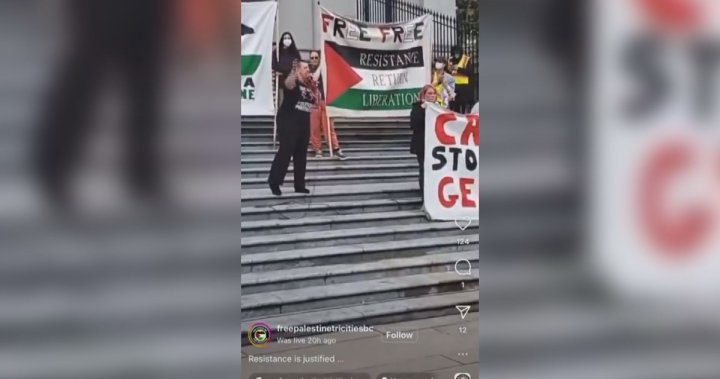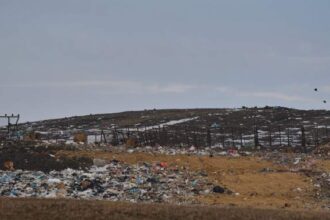In a case that has sparked fierce debate about the boundaries between free speech and hate propaganda, the British Columbia hate crimes unit continues its investigation into Charlotte Kates, the National Coordinator for Samidoun Palestinian Prisoner Solidarity Network, nearly a year after controversial statements made at a pro-Hamas rally in Vancouver.
The investigation, which began following an October 2023 demonstration where Kates allegedly made comments supporting Hamas’ October 7 attack on Israel, has now stretched beyond initial timelines with no clear resolution in sight. The BC Prosecution Service has yet to announce whether charges will be laid under Canada’s hate speech laws, raising questions about the complexity of such cases and the legal thresholds for prosecution.
“The standard for prosecution in hate speech cases is exceptionally high in Canada,” explains legal expert Mira Goldstein, who specializes in constitutional law at the University of Toronto. “Investigators must demonstrate not only that statements were offensive, but that they willfully promoted hatred against an identifiable group in a way that poses genuine harm to social cohesion.”
The case has gained additional scrutiny following recent decisions by both the Canadian and U.S. governments to designate Samidoun as a terrorist entity. Canadian officials cited the organization’s alleged connections to the Popular Front for the Liberation of Palestine (PFLP), which Canada has listed as a terrorist group since 2003.
Law enforcement officials, speaking on condition of anonymity due to the ongoing investigation, indicate that the delay stems from the need to thoroughly analyze contextual factors, including intent, potential harm, and the precise content of statements made during the rally. “These investigations require meticulous examination of evidence, consultation with subject matter experts, and careful consideration of Charter-protected speech rights,” one source explained.
The case highlights growing tensions in Canada regarding demonstrations related to the Israel-Hamas conflict, with authorities struggling to balance vigorous political expression with prohibitions against promoting hatred or violence. Similar investigations have been opened in Toronto, Montreal, and Ottawa following complaints about rhetoric at various protests across the country.
Jewish advocacy organizations have expressed frustration with the pace of the investigation. “When public statements appear to celebrate violence against civilians based on their identity, there should be swift consequences,” said Daniel Levi of the Canadian Jewish Congress. “The lengthy delay sends a troubling message about how seriously such incidents are taken.”
Civil liberties groups, however, caution against overzealous prosecution. “The criminal code provisions against hate propaganda must be applied with extreme caution,” noted civil rights attorney Samantha Chen. “The right to express controversial or even offensive political opinions is fundamental to democracy, particularly regarding international conflicts where perspectives are deeply divided.”
As this investigation continues with no immediate resolution in sight, Canadians across the political spectrum are left wondering: when does passionate advocacy cross the line into punishable hate speech, and how can our society protect both vulnerable communities and fundamental freedoms of expression in increasingly polarized times?
For more on Canadian legal developments, visit CO24 News or follow our ongoing coverage of political tensions at CO24 Politics.
























